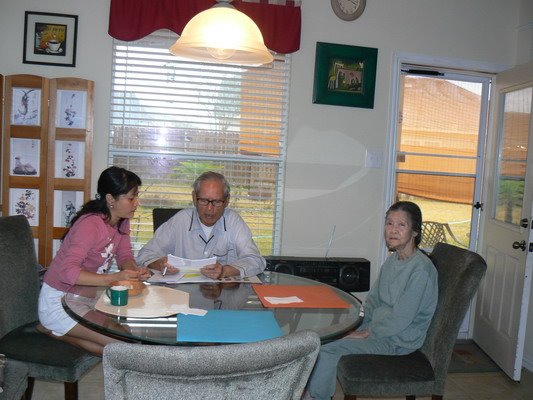
There is an old Chinese fable about good luck and bad luck. The story begins with an old farmer who lost his only horse. All the other farmers in his village must have felt horrible for him because all they could talk about was his stroke of bad luck. However, all the old farmer could say was, “Good luck, bad luck, who knows?” A few days later, the runaway horse returned with two wild horses following it. The farmers in the village must have jealous because they only spoke of the old farmer’s good luck. The old farmer simply responded, “Good luck, bad luck, who knows?”
 While the old farmer’s son was trying to tame the two new wild horses, he broke his leg, and the other farmers were saddened by the old farmer’s recurring bad luck. All the old farmer would say was, “Good luck, bad luck, who knows?” Several days later, the emperor’s soldiers marched through the village taking all able-bodied men and boys to fight in the emperor’s war. The old farmer’s son was left behind because of his broken leg. The villagers found the old farmer’s luck to once again be good, but all the old farmer could say was, “Good luck, bad luck, who knows?”
While the old farmer’s son was trying to tame the two new wild horses, he broke his leg, and the other farmers were saddened by the old farmer’s recurring bad luck. All the old farmer would say was, “Good luck, bad luck, who knows?” Several days later, the emperor’s soldiers marched through the village taking all able-bodied men and boys to fight in the emperor’s war. The old farmer’s son was left behind because of his broken leg. The villagers found the old farmer’s luck to once again be good, but all the old farmer could say was, “Good luck, bad luck, who knows?”
The concept of good luck and bad luck might be alluring to many, but the old farmer in the Chinese fable seems to have the best attitude toward both kinds of luck. We might have good luck one day, but the next day that good luck could turn to bad. The old farmer is probably telling us that we should not take luck too seriously, and that we should try to make  the best of both good and bad without relying on the concept of luck.
the best of both good and bad without relying on the concept of luck.
 the best of both good and bad without relying on the concept of luck.
the best of both good and bad without relying on the concept of luck.From “Eye on Editing 2” – Joce S. Cain
Photos - http://www.pencilplace.com
Photos - http://www.pencilplace.com


1 comment:
It's like saying "it is what it is" It's just life.
Post a Comment